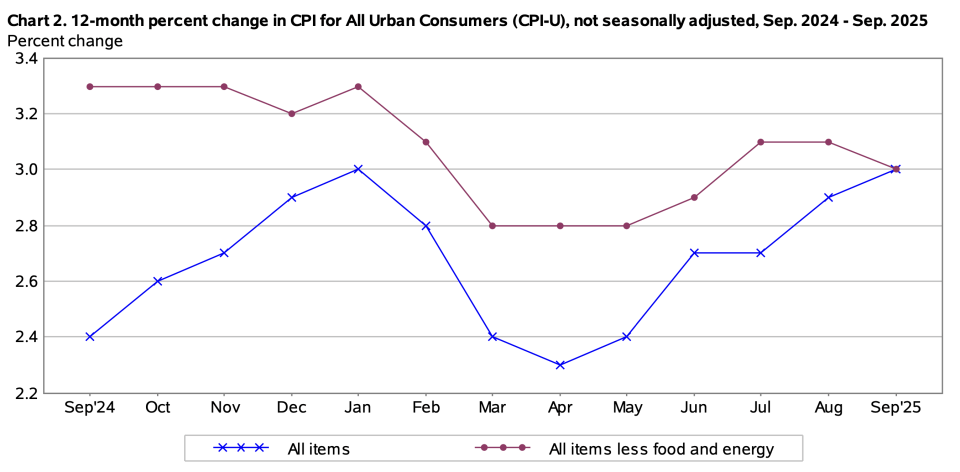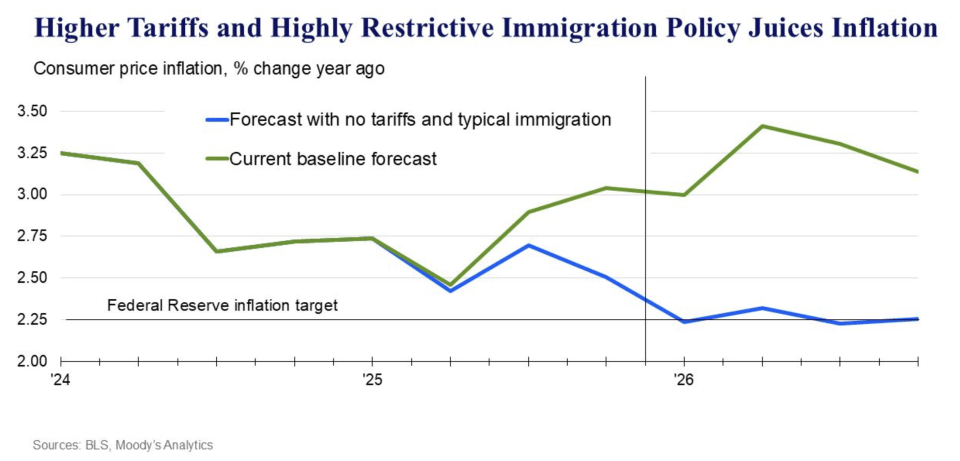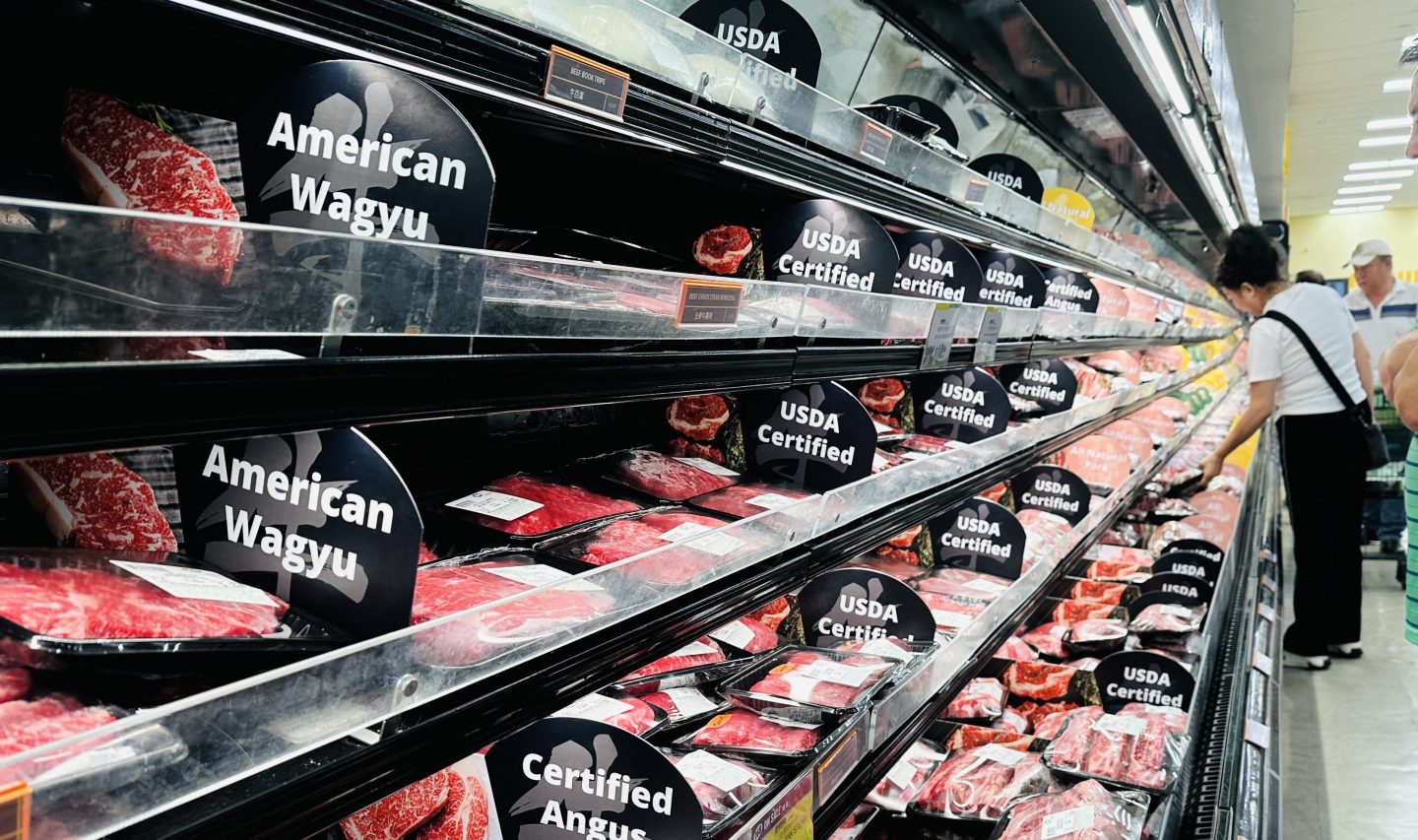Moody’s Analytics chief economist Mark Zandi lamented what could’ve been, if President Donald Trump hadn’t waged war on trade and immigration.
In a social media post on Sunday, he noted that prices have surged since the pandemic and are continuing to climb at an “uncomfortably quick pace,” with the country now suffering an affordability crisis.
“Consumer price inflation is near 3%, well above the Fed’s inflation target, and everything points to even higher inflation dead-ahead,” Zandi said. “It didn’t have to be this way.”
To be sure, inflation has cooled sharply since hitting 9% in 2022, and Trump’s tariffs haven’t stoked inflation as much as anticipated. But the annual rate has still marched higher since he imposed global tariffs in April.
The most recent data from the Bureau of Labor Statistics show that the overall consumer price index was up 3% in September from a year ago, accelerating from an annual rate of 2.3% in April.

Before April, inflation was following a downward trajectory that was on track to slowing back to the Federal Reserve’s 2% target.
“But higher tariffs, highly restrictive immigration policy, and de-globalization more broadly have upended that outlook, and inflation appears likely to remain stubbornly high for the foreseeable future,” Zandi added.
“The high inflation, combined with a job market struggling to create jobs, rising unemployment, and slowing wage growth, means that the tough financial times low- and middle-income Americans are grappling with will continue on.”
In an accompanying chart, he sees inflation heating up even more next year to nearly 3.5% then easing a bit—but remaining above 3%.
By contrast, an alternate scenario without Trump’s tariffs and under normal immigration conditions would send inflation hovering around 2.25% through 2026.

Meanwhile, the Trump administration insists that prices are under control, but has also rolled back certain tariffs on grocery staples like coffee, fruit, and beef.
In an interview Sunday on NBC’s Meet the Press With Kristen Welker, Treasury Secretary Scott Bessent was adamant that inflation hasn’t worsened since April, despite the data showing it has.
“So inflation hasn’t gone up,” he said. “And, Kristen, the one thing that we’re not going to do is do what the Biden administration did and tell the American people they don’t know how they feel.”
Bessent added that imported goods aren’t contributing to inflation and that services, which aren’t directly impacted by tariffs, are fueling it instead.
At the same time, lower energy prices should help ease pressure in other categories while trade deals Trump has reached with top economies will bring other prices down in the coming weeks and months, he predicted.
And lower taxes next year under the One Big Beautiful Bill Act will increase take-home pay for Americans, boosting overall affordability, Bessent said.
“I am very, very optimistic on 2026. We have set the table for a very strong noninflationary growth economy,” he added.













